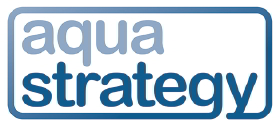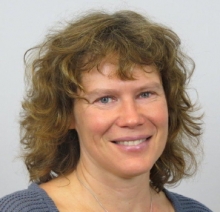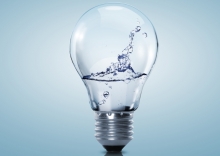Issue:
The water sector in Albania has already begun to embrace reforms such as the use of benchmarking to guide improvements, and further changes are on the way. Keith Hayward spoke with Philip Giantris, who heads the country’s water supply and sewerage association, about progress there and participation in the Danube Water Program.

The joint initiative between the World Bank and the Danube water utility association IAWD that is working to support water utility reforms in eastern Europe includes Albania as one of its target countries. With the programme now entering its second three-year phase, the country already has a track record of participation.
‘One of the objectives of the Danube Water Program is to strengthen water associations, to provide a link through to end user utilities,’ says Philip Giantris, Executive Director of SHUKALB, the Water Supply and Sewerage Association of Albania. The first phase included a competitive grant programme. ‘We did two things under that programme, one of which was to develop a manual of business planning for water associations,’ he explains. The other Albanian project which received funding was for the development of a framework for a training programme covering the western Balkans – Montenegro, Kosovo, Albania, and the Former Yugoslav Republic of Macedonia.
‘As an association, we’re deeply involved in the programme,’ comments Giantris.
Until now, this has not been so much the case as far as individual utilities are concerned. The only other involvement to date was the participation of four utilities in a benchmarking hub managed by the water association in Kosovo. This is not due to a lack of interest in benchmarking – quite the opposite, in fact, with utilities already having to commit resources in this area. ‘We have a very established benchmarking programme in Albania,’ explains Giantris. This has been running for eight years and is mandatory. ‘The utilities feel this is enough,’ he adds.
‘A rapid increase in improvement in the economy of scale of the utilities is going to take place in Albania between now and the beginning of next year.’
Reforms on the way
The sector in Albania still has a way to go in terms of the improvements it needs to see. On benchmarking, for example, Giantris notes that although the system is quite a good one, the quality of the data is not as high as it should be. More generally, there are still challenges in areas such as training, an ageing workforce in the sector, and a turnover of utility directors linked to local government changes. ‘We still have many utilities that do not cover operating costs,’ adds Giantris.
It is also the case that there are changes underway that can be expected to bring significant improvements to the sector. For example, last year the country passed its Territorial Administrative Reform law, substantially reducing the number of local governments from around 372 to 61, explains Giantris. Just recently the country’s Council of Ministers passed the Water Supply and Sewage Sector Reform decision. ‘Mayors have a lot more control over these utilities,’ he notes. The changes at the moment anticipate one utility for each local government, a slight increase on the current 58 formal utilities and a number which Giantris believes would be too high. ‘The utility services will start to aggregate or combine very rapidly,’ he says. ‘A rapid increase in improvement in the economy of scale of the utilities is going to take place in Albania between now and the beginning of next year.’
In addition, Giantris points to the very significant progress on water sector training that is being made, involving SHUKALB and USAID. ‘Almost two years ago we put forward a proposal under a global competitive programme run by USAID and won a $1.3 million contract to develop 40-50 fully documented training courses to be the basis for a training programme in Albania,’ he explains. The country’s new government has since embarked on a drive to promote certification in a number of sectors, opening the opportunity for SHUKALB to propose certification in the water sector. ‘All of a sudden, the stars aligned,’ comments Giantris. ‘We have created a work group that is being driven by the ministry, and we will have test-based certification in Albania within a year,’ he adds, pointing out also that he expects the training materials from the USAID project will provide a resource for the Danube Water Program.
The future of the Danube Water Program
With the second three-year phase of the Danube Water Program now getting underway, Giantris anticipates further participation by Albania and is supportive of the wider ambitions of the programme.
In terms of projects, there will be another round of competitive grant awards, and Giantris anticipates that SHUKALB will submit further bids under this, including one to build on the progress being made with certification.
Giantris explains that the new training programme in Albania follows the model used in the US to create certified operators. The government is also keen to introduce certification of utility heads and of commercial directors responsible for finance and customer services. Giantris says SHUKALB therefore plans to submit a proposal with that in mind. ‘What we will be doing is proposing a training programme for directors of water utilities,’ he says.
More generally, one of the aims of the programme is to strengthen the IAWD. ‘If you look up and down the Balkans, we are too small as countries,’ says Giantris. ‘We need an umbrella organisation, without making too much overhead. We are looking to IAWD to be that umbrella organisation that strengthens the delivery of water and wastewater services.’
This said, he thinks the various national associations have a crucial role to play in individual countries providing a connection to allow services and support to reach individual utilities. ‘They are the only players on the field,’ says Giantris.
Giantris also sees that the involvement of the World Bank in the programme makes a huge difference to how it is regarded, and in fact believes that other institutions funding the region ought to participate. ‘Once local authorities realise the links between good governance and the money they are going to get, they will pay attention,’ he comments.
Related article: The Danube initiative driving water utility reforms in eastern Europe
Keywords:
- Albania, utility management






